Presenters: IEPRS Conference
UCF Institute of Exercise Physiology and Rehabilitation Science
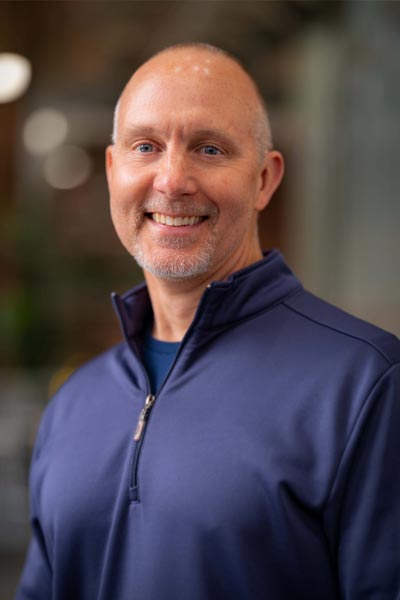
IEPRS KEYNOTE LECTURE: Marcas M. Bamman, Ph.D., FACSM, Florida Institute for Human & Machine Cognition
Dr. Marcas Bamman is a Senior Research Scientist and Director of Healthspan, Resilience, and Performance Research at the Florida Institute for Human and Machine Cognition. He leads and fosters translational human research ranging from chronic disease to elite performers, and from biological underpinnings to clinical outcomes supported by federal funding since the 1990s. In 2019 he ranked 3rd nationally in NIH funding among 821 investigators in cell biology and today he continues to lead a portfolio of clinical and translational research supported by the DoD and NIH, with programs focused primarily on stress resilience and inter-individual response heterogeneity. Prior to joining IHMC (2020), during a 25-year career at the University of Alabama at Birmingham (UAB), he was Professor in the School of Medicine, founding Director of the UAB Center for Exercise Medicine, and UAHSF Endowed Professor in Regenerative and Translational Medicine. He is currently Professor Emeritus in the UAB School of Medicine. Dr. Bamman served as Director of the NIH National Rehabilitation Research Resource to Enhance Clinical Trials (REACT) and Director of the NIH National Medical Rehabilitation Research Resource Network Coordinating Center. He was an Executive Committee member for the NIH Molecular Transducers of Physical Activity Consortium (MoTrPAC), is an American College of Sports Medicine (ACSM) Fellow, former ACSM Board of Trustees member, and he chaired the 2021 ACSM World Congress on the Basic Science of Exercise in Regenerative Medicine. Dr. Bamman has served on >90 grant review panels and site visit teams and has published >180 research papers with a current H-index of 65.
Lecture: Multidimensional Interrogation of Inter-individual Exercise Response Heterogeneity (IRH)
The motivation for advancing precision medicine and precision rehabilitation is anchored in inter-individual differences in responsiveness to various treatment strategies. A better understanding of these differences is thus necessary to optimize treatment efficacy for each individual. Exercise training is no different. While exercise training is a multipotent “medicine” that induces profound health benefits, these adaptations vary widely among people. In this lecture Dr. Bamman will discuss progress in understanding IRH, including a multidimensional learning framework that can be useful toward identifying key features that may become targets for augmentation.

Lauren Sparks, Ph.D., AdventHealth Translational Research Institute for Metabolism and Diabetes
Dr. Lauren M. Sparks is an Investigator at the Translational Research Institute. Dr. Sparks pursues investigations on the topics of exercise response variation. Dr. Sparks is interested in understanding why some individuals do not respond favorably to exercise as a means of improving their metabolism and related co-morbidities. She aims to advance the field of exercise and type 2 diabetes and potentially shift the paradigm, allowing interventions to be targeted to those individuals most likely to benefit as well as identify novel approaches to treat those who do not. Dr. Sparks investigates the communication between muscle and fat tissue and how some individuals who are obese, but metabolically healthy, differ from those individuals who are obese and metabolically unhealthy. Prior to joining the TRI, Dr. Sparks was a postdoctoral scientist at Maastricht University in the Netherlands from 2009-2012. She focused on exercise and mitochondrial function in muscle and brown adipose tissue. From 2006-2009, Dr. Sparks was a postdoctoral fellow at Pennington Biomedical Research Center in Baton Rouge, Louisiana with a focus on exercise and substrate metabolism in type 2 diabetes. Dr. Lauren Sparks was born in Patterson, Louisiana. She earned a B.S. in Zoology and a B.A. in Spanish in 2002 and continued on to earn her Ph.D. in Molecular Biology in 2006 from Louisiana State University.
Lecture: Molecular Metabolism in Human Skeletal Muscle Tissue and Cells in the Contexts of Diabetes and Exercise Training
By 2050 the number of people with diagnosed diabetes in the United States will reach 29 million. Increased sedentary behavior, coupled with early onset of type 2 diabetes (T2D), has popularized exercise interventions as both an investigative tool of the health benefits associated with physical activity and as a feasible lifestyle modification. We know that exercise benefits most, but not all, individuals with insulin resistance (IR) and T2D, such that some people derive less metabolic benefit from exercise. The beneficial effects are well studied, but why some individuals do not respond favorably to exercise is largely unexplored and lack a translational focus. Over the past decade, we have focused our research efforts on identifying those individuals with T2D that do not respond favorably to exercise and investigated the underlying mechanisms which can predict this lack of response. These findings will change how we prescribe exercise as a treatment and prevention for T2D. Our innovative approach is translational by combining human in vivo and in vitro models with cutting-edge methodologies such as magnetic resonance spectroscopy (MRS), high resolution respirometry and epigenetic regulation studies. In my talk, I will explore several aspects of molecular metabolism in human skeletal muscle tissue and cells in the contexts of diabetes and exercise training.
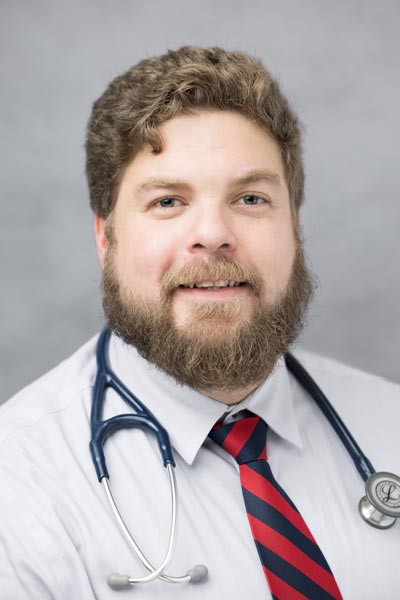
Rich Severin PT, DPT, Ph.D., University of Illinois at Chicago
Dr. Rich Severin is a board-certified cardiovascular and pulmonary clinical specialist. Dr. Severin serves as clinical assistant professor in the Department of Physical Therapy at the University of Illinois at Chicago and is the program coordinator of the UIC/UIHealth bariatric surgery rehabilitation program. Additionally, he serves as a member of the APTA Science and Practice Affairs Committee, associate editor of Cardiopulmonary Physical Therapy Journal and Chief Delegate for the APTA Academy of Cardiovascular and Pulmonary Physical Therapy. He has published scholarly work and presented both nationally and internationally on the topics of respiratory muscle performance, ultrasonographic imaging, and medical screening in physical therapy practice. Additionally, he is the author of the section on respiratory muscle testing and training in the 12th edition of the American College of Sports Medicine Guidelines for Exercise Testing and Prescription.
Lecture: Respiratory Muscle Testing and Training: Breathing Across the Spectrum of Health and Human Performance
Respiratory muscle performance testing and respiratory muscle training (RMT) have been utilized across the continuum of health and human performance with generally positive outcomes. Despite the impact of respiratory muscle performance impairments on physical function and benefits of RMT, respiratory muscle performance testing and RMT are not routinely implemented in clinical practice. This session will highlight the role of respiratory muscle performance on clinical outcomes, the benefit of RMT across different clinical populations, and how to implement respiratory testing and training in clinical practice and research.
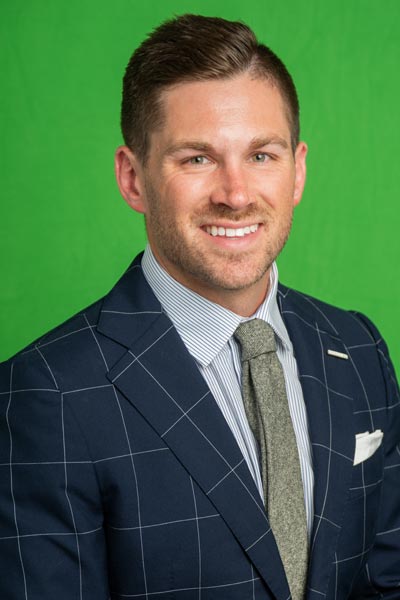
Joshua L. Keller Ph.D., CSCS, CISSN, University of North Texas
Dr. Joshua Keller is an assistant professor of Health Disparities and the Integrative Laboratory of Exercise and Applied Physiology (iLEAP) director at the University of North Texas in the Department of Kinesiology, Health Promotion and Recreation. He earned a Ph.D. in Exercise Physiology from the University of Nebraska–Lincoln under the mentorship of Dr. Terry Housh. He has since completed additional training, including the National Institute on Aging’s Butler – Williams Scholar Program and the fellow’s program at the Institute of Methods and Protocols for Advancement of Clinical Trials in Alzheimer’s Disease and related Dementias. Dr. Keller took his first faculty position at the University of South Alabama and spent four years there before transitioning to UNT. His primary research agenda includes the non-invasive assessment of peripheral vascular health and skeletal muscle function, especially how they relate to preserving cognition. Tools to address this agenda include near-infrared spectroscopy, venous occlusion plethysmography, and ultrasonography. He primarily designs interventions and studies centered around resistance training to highlight the importance of skeletal muscle. His overarching goal is to understand gaps in the quality of health and function that are at least partly influenced by biological sex, racial and ethnic background, socioeconomic status, and educational level.
Lecture: To Periphery and Beyond! Significance of Blood Flow and Oxygenation Measures.
Measures of peripheral blood flow and oxygen delivery are routinely shown to be potent predictors of cardiovascular disease and neurodegeneration. Most interestingly, skeletal muscle health may be the primary factor affecting these measures, instead of being exclusively influenced by microvascular function. This session will present a series of experiments detailing the relation between lean mass and peripheral vascular measures with a substantial emphasis on sex differences and the preservation of cognition. Peripheral vascular measures will be discussed across many conditions, including but not limited to myofascial release, passive limb heating, and blood flow restriction resistance training.
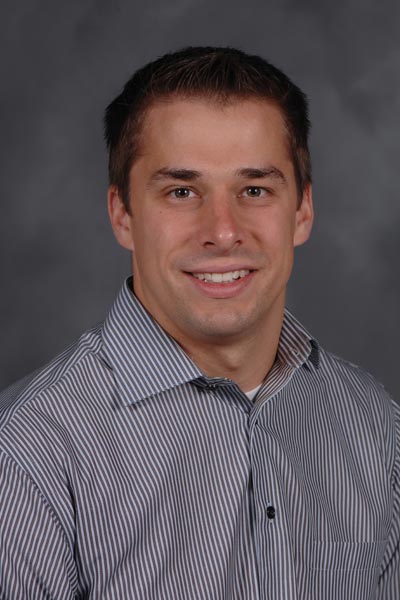
Adam Jajtner, PhD CSCS*D, Kent State University
Dr. Adam Jajtner is an Associate Professor and Undergraduate Program coordinator in the Exercise Science and Physiology program, Director of the Exercise Performance and Recovery Lab, as well as the coordinator of the Exercise Biochemistry and Immunology Lab at Kent State University. He earned his PhD from the University of Central Florida in 2016 and took a faculty position at Kent State University the same year. Dr. Jajtner’s primary research interests revolve around the inflammatory response related to exercise and the role of the immune system in the recovery following strenuous exercise. Broadly, his goal is to understand the mechanisms by which immune cells pass from circulation into skeletal muscle to exert their function within the tissue.
Lecture: IEPRS Honorary Alumni Lecture: Recovery Techniques Following Resistance Exercise: An Inflammatory Perspective
Inflammation associated with exercise is a necessary component to a complete repair and recovery. Yet, recovery techniques are routinely used with the hope of enhancing skeletal muscle regeneration following muscle damage. However, many of these recovery modalities will modify the natural inflammatory response, which has the potential to impede optimal recovery.

Lindsay Hannigan, Ph.D., CSCS, University of Illinois at Chicago
Dr. Hannigan is an Assistant Professor in the Department of Physical Therapy and the Director of the Human and Sport Performance Laboratory at the University of Illinois at Chicago. Dr. Hannigan received her Ph.D. in sports medicine from the University of Virginia where she evaluated biomechanical and strength adaptations following anterior cruciate ligament reconstruction before and after high-intensity exercise. Following completion of her Ph.D., Dr. Hannian worked as postdoctoral fellow at the Shirley Ryan AbilityLab (formerly known as the Rehabilitation Institute of Chicago) in the Center for Bionic Medicine. In her postdoctoral training, Dr. Hannigan worked with individuals with lower limb amputation on interventions to improve muscle strength in the intact limb.
Lecture: Science in the Olympic Arena
Creating Olympic champions requires incredible talent, work ethic, coaching, and body awareness. It also requires a team of scientists and clinicians who work behind the scenes to monitor training loads, performance, and recovery. We will discuss some of the ways we use science to improve performance for athletes at U.S. Figure Skating and its implication for other populations.
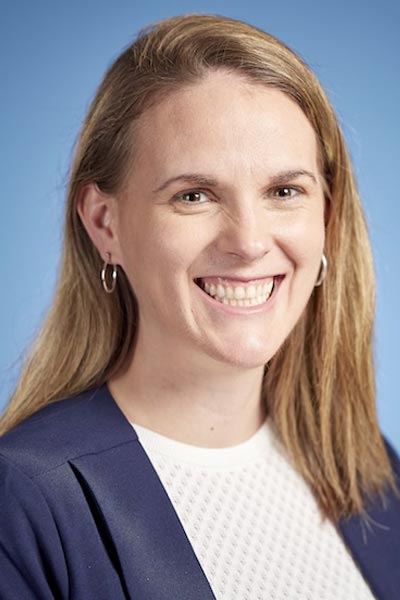
Katie Lucas, PT, DPT, Ph.D., Creighton University
Katie Lucas, PT, DPT, Ph.D., is an Assistant Professor in Creighton University’s Physical Therapy Department in Phoenix, AZ. Dr. Lucas is a board-certified clinical specialist in both orthopedic and sports physical therapy through the American Physical Therapy Association and is a certified strength and conditioning specialist through the National Strength and Conditioning Association. She is a United States Olympic and Paralympic Committee National Medical Classifier for track and field and an item writer for the American Board of Physical Therapy Specialties. Her research focuses on identifying biomechanical compensations and promoting neuromusculoskeletal recovery and safe return (or entry) to sport after injury for individuals with and without lifelong disabilities.
Lecture: Youth Adaptive Sports: The Intersection of Neurologic and Sports Interventions
Sports offers young athletes the opportunity to develop physical, mental, and social skills in a motivating and fun environment. For children with lifelong disabilities, sports can offer even greater physical benefits, especially when paired with neuromusculoskeletal therapeutic techniques. This lecture will discuss the intersection of neurological and sport-specific interventions to promote neuromusculoskeletal growth during development, and how adaptive sports can help therapeutic interventions.
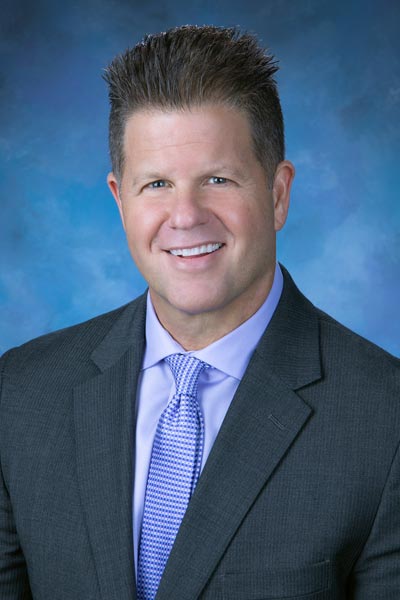
Morey J. Kolber, PT, Ph.D., OCS, FNSCA, Nova Southeastern University
Morey J. Kolber, PT, Ph.D., OCS, FNSCA is a professor in the Department of Physical Therapy at Nova Southeastern University in Fort Lauderdale, Florida. Morey received his physical therapy degree from the University of Miami, in Coral Gables, Florda and his Ph.D. from Nova Southeastern University. He holds a board certification in orthopedic physical therapy and is a Fellow of the National Conditioning Association. In addition to his appointment at Nova Southeastern University, he serves as the Health and Wellness Coordinator for Palm Beach Gardens Fire Rescue. In 2018, he completed a sabbatical externship at the Institute of Regenerative Medicine in Boca Raton, Florida.
Lecture: Orthopaedic Regenerative Medicine: An Overview for Exercise Physiology and Rehabilitation Science Professionals
This lecture will provide a brief overview of platelet rich plasma and stem cell procedures for orthopaedic injuries and disorders. Indications for these procedures will be discussed as will the anticipated benefits related to the microenvironment. Exercise-based interventions will be discussed within the context of manipulating the cellular microenvironment to achieve benefits synergistic to regenerative medicine procedures.
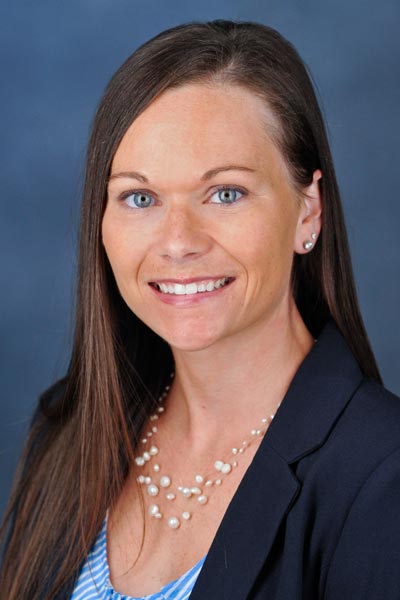
Ashley A. Herda Ph.D., CSCS,*D, CPSS,*D, FNSCA, University of Kansas
Ashley A. Herda, Ph.D. is an Assistant Professor and Director of the Exercise and Human Performance Laboratory in the Department of Health, Sport, and Exercise Sciences at the University of Kansas and holds an affiliate faculty position in the Department of Orthopedics and Sports Medicine at the KU Medical Center. Dr. Herda was born and raised in southwest Florida and completed her Bachelor of Science in Exercise Science and Health Promotion (2006) from Florida Atlantic University in Boca Raton, Florida. She continued her education at the University of Oklahoma in Norman, Oklahoma where she earned her Master of Science in Exercise Physiology (2008) under the mentorship of Dr. Jeff Stout and Doctorate of Philosophy in Exercise Physiology (2011) under the mentorship of Dr. Joel Cramer. Dr. Herda’s research interests include the investigation of nutritional supplements and/or exercise interventions on performance and body composition in men and women across the lifespan. Specifically, the efficacy of various training programs that may influence the risk of sarcopenia in older adults. Additionally, Dr. Herda’s current research track includes the evaluation of the musculoskeletal and functional changes that occur following orthopedic surgery. Her research team incorporates non-invasive tools such as EMG and ultrasound to identify deficiencies and asymmetries between post-operative patients, healthy controls, and non-operative limbs. Further evaluation includes the measurement of energy metabolism throughout rehabilitation to best determine perioperative nutritional guidance.
Lecture: Move it or Lose it: An All-Systems Approach to Functional Aging
Pursuing an active lifestyle while aging should be the goal to achieve longevity and mitigate sarcopenia. We will explore various modes of exercise training and present the influence of these on the various systems of the body. These include bone, metabolism, muscular strength, cardiovascular, and mental health. Additional insight will be presented on the effects of similar training in injured individuals to prevent disuse atrophy.
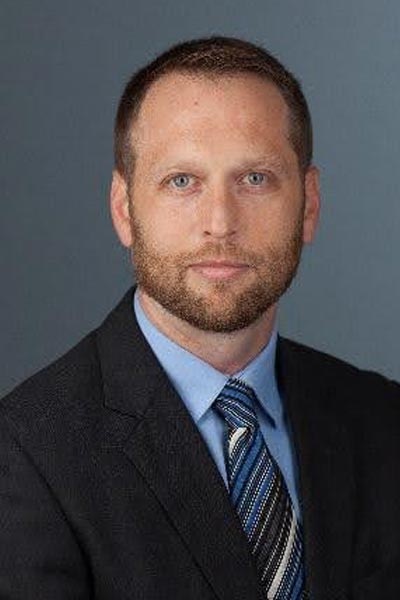
Trent Herda, Ph.D. University of Kansas
Trent J. Herda, Ph.D. is a Professor in the Department of Health, Sport, and Exercise Sciences. He is the director of the Neuromechanics Laboratory and Well-Fit, The Center for Youth Wellness and Fitness. Well-Fit is based on the principle that youth should be provided knowledge and skills to improve physical wellness and fitness. Well-fit provides educational content (Sci-FIIT Academy) and in-person programming to teach youth wellness, exercise, and sport-related skills. Well-Fit actively engages in conducting and dissemination of research.
Dr. Herda is the founder of the Sci-FIIT Academy (sci-fiit.com). The Sci-FIIT Academy was created to provide educational content for youth to improve physical fitness and wellness. The educational content is delivered via STEM learning while being engaging and interactive. Dr. Herda’s primary research interests include examining the effects of acute and chronic resistance exercise and physical inactivity on skeletal muscle composition and properties of motor units across the lifespan. Of particular interest to the Neuromechanics Laboratory is quantifying alterations in the composition of the muscle (muscle size, intramuscular fat, etc.) as a result of resistance exercise training, physical activity, and diet in prepubescent youth and, subsequently, the effects of changes in muscle composition may have on physical and metabolic performance later in life.
Lecture: Resistance Training and the Motor Unit: Considerations for Rehabilitation
The motor unit links the neural and mechanical mechanisms that modulate strength and, therefore, the motor unit is directly influenced by resistance exercise training. Increases in discharges or recruitment of motor units is often hypothesized to explain increases in strength following resistance training. The lecture will focus on the complexity of motor unit firing rate and recruitment patterns, describe studies that have directly examined motor units, and relate findings to rehabilitation programs.
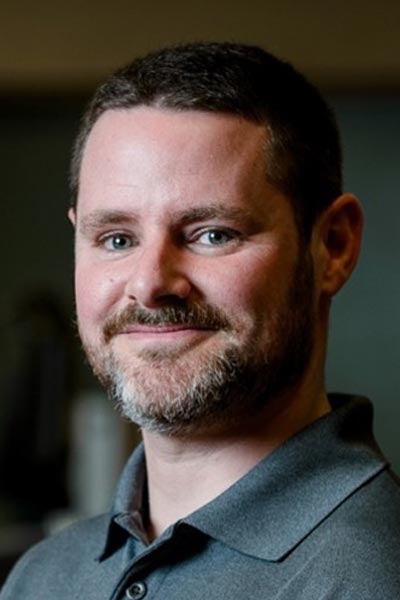
Kevin Power, Ph.D., CSEP-CEP, Memorial University of Newfoundland
Kevin Power (Ph.D. in Neurophysiology) is the Associate Dean for Undergraduate Studies and Full Professor in the School of Human Kinetics and Recreation at Memorial University of Newfoundland and Co-Director of the Human Neurophysiology Lab. He has spent the last two decades examining how the nervous system produces locomotor output. His doctoral and postdoctoral work (2003-2010) were completed at the Spinal Cord Research Centre in Winnipeg, Manitoba, where he used non-human animal models (adult cat and rat; neonatal rat) to examine spinal motoneurone excitability during locomotor output.
Since establishing his lab in 2010, Dr. Power has expanded upon his earlier research by applying it to human studies. His work specifically examines the neural control of arm cycling, a rhythmic motor activity that shares several neural control mechanisms with locomotion. The outcomes of his research offer valuable insights for developing neurorehabilitation programs for individuals recovering from strokes or traumatic brain injuries. Dr. Power has also contributed to the scientific community as an Associate Editor for Applied Physiology, Nutrition, and Metabolism, and has held various leadership roles within the Canadian Society for Exercise Physiology (CSEP), including Vice-Chair of Research, Treasurer, and as the current Chair-Elect. Additionally, he is a certified Clinical Exercise Physiologist® and a course instructor/examiner for CSEP.
Lecture: Acute and Chronic Neural Adaptations to Locomotor Output
The corticospinal pathway, which includes the motor cortex and spinal motoneurones, is a primary descending pathway involved in the neural control of human movement. This lecture will focus on acute and chronic adaptations that occur along the corticospinal pathway during locomotor activity, with a discussion of practical applications.
